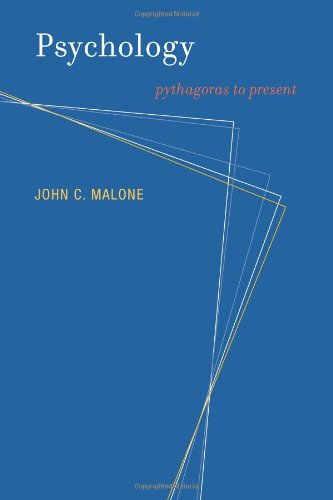

Most ebook files are in PDF format, so you can easily read them using various software such as Foxit Reader or directly on the Google Chrome browser.
Some ebook files are released by publishers in other formats such as .awz, .mobi, .epub, .fb2, etc. You may need to install specific software to read these formats on mobile/PC, such as Calibre.
Please read the tutorial at this link. https://ebooknice.com/page/post?id=faq
We offer FREE conversion to the popular formats you request; however, this may take some time. Therefore, right after payment, please email us, and we will try to provide the service as quickly as possible.
For some exceptional file formats or broken links (if any), please refrain from opening any disputes. Instead, email us first, and we will try to assist within a maximum of 6 hours.
EbookNice Team

Status:
Available0.0
0 reviewsCertain ideas have preoccupied thinkers since ancient times: the nature of mind, the sources of knowledge and belief, the nature of the self, ethics and the best way to lead our lives, the question of free will. In this book, John Malone examines these ideas in the writings of thinkers from antiquity to the present day and argues for their importance not just as precursors of modern views but as ideas that are frequently better than current ones. We can get good advice, he writes, from the writings of the best thinkers of the past. Pythagoras, Thales, Plato, Protagoras, Aristotle, Diogenes, and Epictetus all offer tried and tested ideas on how we should lead our lives and on the treatment of psychopathology--as do Berkeley, Hume, John Stuart Mill, Johann Friedrich Herbart, Wilhelm Wundt, William James, Sigmund Freud, and B. F. Skinner. Malone begins with the naturalistic and mystical strains of early Greek thought, moves on to Platonism and the world of Forms (and considers parallels between the thought of Plato and Freud), and discusses "Ancient Self-Help Therapies" (including Epicureanism). He investigates the psychological insights of Enlightenment thinkers including Francis Bacon and Galileo, Locke's and Kant's theories of experience, and Darwin's evolutionary thinking. He charts the rise of modern psychology and the beginning of "biological psychology." He examines the work of Wundt, Titchener, Freud, Peirce, and James, among others, and describes the ideas of behaviorism, Gestalt psychology, and cognitive science. Malone's history offers both breadth and depth, an engaging style and rigorous scholarship, demonstrating vividly the relevance of the great historical psychological thinkers.